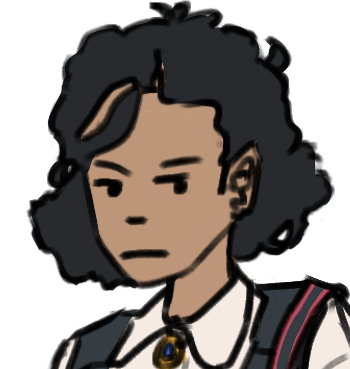NEW Story: Sunday Morning
The Trials of Cobian

✿ This article was featured in Issue #1 of the Atlantic Bulletin
According to her friends, Tzipora’s contemporary afflictions were tragic. Her medical problems; her violent childhood; her sensitivity and melancholy — you could feel sorry for her, because a lot of her problems were not her fault. She invoked sympathy.
Tzipora never considered herself particularly tragic. It seemed straightforward, if difficult; she continued to live — and so she lived. Tzipora’s sympathy was instead reserved for her first and closest friend: Cobian.
Cobian was not well-liked at school, and it did not take long for Tzipora to find out why. She had a childish edge for a sixteen-year-old, and bitterly hated losing. She was not good at school or sports, was not particularly charming, and came across as desperately lonely. She was a quiet misandrist, which would have been fine if she could play the part of a self-assured social matriarch, but her mother’s despotic conservatism struck out that possibility early on. Such is life.
And because her world was predicated on being liked and living a normal life, her psyche prohibited self-reflection. That was the great difference between Cobian and Tzipora. They may both have been young and neurotic, but Tzipora’s relentless self-interrogation left great space for personal growth. Cobian was instead trapped in a domestic play-fantasy, in which she could live out a mythical high-school life, and shattering that illusion would collapse her whole reason for being.
Tzipora recalled visiting Cobian’s home for the first time. Cobian’s mother asked Tzipora to remove her shoes and socks and wash her feet before going to play inside. By the time Tzipora found Cobian in her room, the girl had already changed and handed over her uniform to be laundered. Tzipora, in her tomboyish indigence, had never encountered such a brutally hygienic regime.
Cobian was a different girl at home. Her anxiety and neurosis washed out a little, and her confidence was propped up by the routines her mother had set out for her since she was a child. There was a friendly, curious girl buried under a decade of loneliness.
Tzipora wondered what Cobian thought about lying in bed at night, and why the girl worried so much about things that didn’t matter. And it was precisely in the smallness of those things and the tremendous anxiety Cobian owed toward them that made Tzipora want to hug her. To be so worked up over something so pathetic was startlingly moving. The idea that the girl had deluded herself into a corner of hopelessness seemed sad — and the fact that no one would reasonably care about such a feeble, meaningless, self-inflicted state of affairs made it tragic.
Through Tzipora’s friendship and the world it opened up for her, some of Cobian’s edges were sanded down. Some of it was a late maturity — some of it was Tzipora’s dismantling of the scaffolding the girl’s mother had shoved in there. With that effort, and obvious love, Cobian’s reason for being changed too. One day, in Tzipora’s presence, it didn’t seem so important to be liked by everybody anymore.

